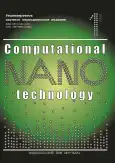Comparative Analysis of HDFS and Apache Ozone Data Storage Systems
- Authors: Ievlev K.O.1, Gorodnichev M.G.1
-
Affiliations:
- Moscow Technical University of Communications and Informatics
- Issue: Vol 12, No 1 (2025)
- Pages: 26-33
- Section: INFORMATION TECHNOLOGY AND TELECOMMUNICATION
- URL: https://journals.eco-vector.com/2313-223X/article/view/679126
- DOI: https://doi.org/10.33693/2313-223X-2025-12-1-26-33
- EDN: https://elibrary.ru/LNPTVP
- ID: 679126
Cite item
Abstract
Over the last few decades, both the volume of digital data in the globe and the variety of ways to use it have increased dramatically. For a long time, the Hadoop ecosystem, which is still widely utilized, has been synonymous with large data storage and processing platforms. However, during the past 20 years, Hadoop has been found to have a number of serious flaws, including the “small files problem” and uneven cluster resource usage. Various commercial and research organizations are faced with the issue of upgrading the data stack to improve resource utilization and increasing data processing efficiency. This study aims to examine the benefits and drawbacks of the next-generation data storage system, Apache Ozone, and to assess whether this technology is ready to completely supplant the Hadoop Distributed File System (HDFS).
Full Text
About the authors
Kirill O. Ievlev
Moscow Technical University of Communications and Informatics
Author for correspondence.
Email: ievlev.k.o@yandex.ru
ORCID iD: 0009-0003-2723-3154
SPIN-code: 1380-5720
ResearcherId: IAN-1730-2023
Postgraduate Student, Assistant of the Department of Mathematical Cybernetics and Information Technologies
Russian Federation, MoscowMikhail G. Gorodnichev
Moscow Technical University of Communications and Informatics
Email: m.g.gorodnichev@mtuci.ru
ORCID iD: 0000-0003-1739-9831
SPIN-code: 4576-9642
Scopus Author ID: 55836031600
ResearcherId: D-3256-2019
Cand. Sci. (Eng.), Associate Professor, Head of the Department of Mathematical Cybernetics and Information Technologies, Dean of the Faculty of Information Technologies
Russian Federation, MoscowReferences
- Aggarwal R., Verma J., Siwach M. Small files’ problem in Hadoop: A systematic literature review. Journal of King Saud University “Computer and Information Sciences”. 2022. No. 34 (10). Part A. Pp. 8658–8674. doi: 10.1016/j.jksuci.2021.09.007.
- Harby A.A., Zulkernine F. From data warehouse to lakehouse: A comparative review. In: IEEE International Conference on Big Data (Big Data). Osaka, 2022. Pp. 389–395. doi: 10.1109/BigData55660.2022.10020719.
- Jain E.P., Gupta E.A. Hadoop architecture and its issues. International Journal of Engineering Research and General Science. 2017. No. 5 (2). Pp. 211–217. doi: 10.1109/CSCI.2014.140.
- Niazi S., Ismail M., Haridi S. et al. HopsFS: Scaling Hierarchical File System Metadata Using NewSQL Databases. In: 15th USENIX Conference on File and Storage Technologies (FAST 17). USENIX Association, 2017. Pp. 89–104. doi: 10.48550/arXiv.1606.01588.
- Sharma G., Tripathi V., Srivastava A. Recent trends in Big Data ingestion tools: A study. In: Research in Intelligent and Computing in Engineering, Springer, 2021. Pp. 873–881. doi: 10.1007/978-981-15-7527-3_83.
- Shvachko K. HDFS scalability: The limits to growth. Login Usenix Mag. 2010. No. 35. Pp. 6–16.
- White T. Hadoop: The definitive guide. 4 ed. O’Reilly Media, Inc., 2015. 754 p.
Supplementary files














